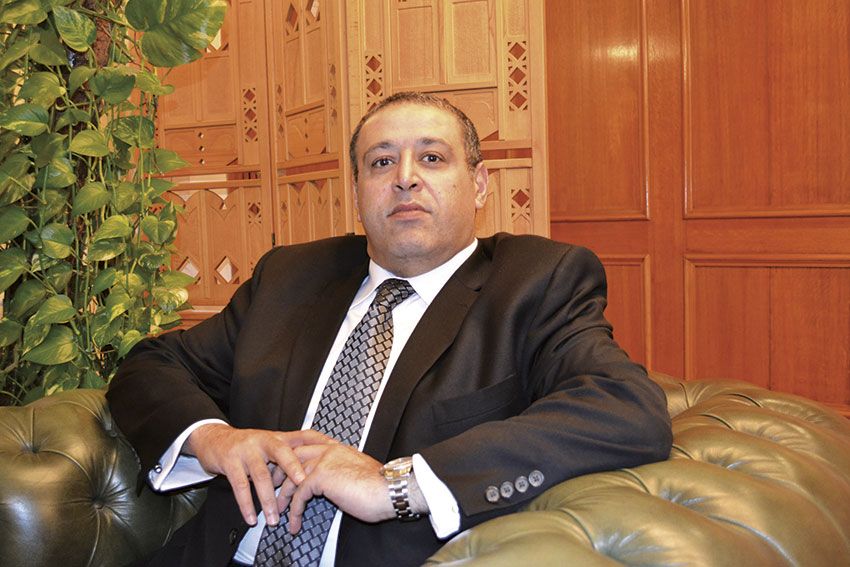Already ranked second globally for return on investment, Egypt is getting ready to launch a new one-stop shop system intended to further encourage FDI

There is growing confidence in Egypt’s investment climate. A new investment law is expected to add to this momentum. Creating a one-stop shop for foreign companies, as well as a resolution mechanism for disputes, the law aims to make investing in Egypt more attractive.
Already, the business climate in Egypt is growing in strength. The economy is now ranked second in the world for returns on investment and in the first quarter of 2014/15, Egypt enjoyed a 6.8% growth rate. Unemployment fell to 13.1% and foreign direct investment (FDI) reached $1.8 billion, doubling the amount of FDI for the same period last year.
A number of obstacles to investment still remain, however. Reflecting problems with red tape, cumbersome regulations and poor enforcement of contracts, Egypt was recently ranked as the 112th best country (out of 189) by the World Bank in its annual Doing Business report. The new investment law will tackle and remove these obstacles.
As Minister of Investment Ashraf Salman explains: “It is a matter of removing the existing impediments for foreign and domestic investment. The impediments are bureaucracy, procedures, permits and licenses. It takes an unnecessary length of time to open a business from entry to operation.”
The ‘one-stop shop’ system is a key component of the new legislation, which will unify and simplify the process of obtaining licenses in Egypt, allowing investors to work through a single window operated by the General Authority for Investment (GAFI). As Ambassador Yasser Elnaggar, Principal Deputy Minister of Investment, says, “We want to make it easier for companies to enter the market, receive approval for their investment and start their new venture.”
Presently, investors may have to interact with as many as 70 government agencies; therefore, the advantages of the new scheme are clear. “With this new method, only one entity deals with the investor,” Ambassador Elnaggar adds. “As a result, the company seeking the license no longer has to deal with multiple parties, reducing opportunities for corruption.”
The new legislation also tackles the thorny problem of disputes between Egypt and investors, which arose following the 2011 revolution. In an attempt to resolve these disputes and to increase confidence in the Egyptian market for foreign investors, the bill establishes two committees to resolve disputes between investors and the Egyptian state.
The first committee is organized by the Ministry of Investment, and addresses disputes that concern licensing and the implementation of projects. Work has already started, with almost 230 of the 360 complaints already resolved. A second cabinet committee, headed by the Prime Minister, will focus upon disputes arising from investment contracts between the state and investors. This committee has already resolved 14 of the 25 cases brought before it.
Building on the government’s commitment to social inclusion, the new investment law also aims to direct greater private sector investment to underdeveloped provinces like Upper Egypt and the border regions, says Minister Salman.
“It is clear that we need to find ways to spur private sector interest in developing these areas,” adds Ambassador Elnaggar. “The role of the government should only be that of a regulator and to introduce laws and policies that promote investment. It is the private sector that ultimately will make the difference. As the private sector is the engine of growth, the government must find ways, through our Investment Law, to encourage investment in previously untapped regions of Egypt.”
The law will also include a provision for an ‘Investment Promotion Agency’, which will focus on creating a map of available opportunities for foreign investors interested in the Egyptian market.
“The Investment Promotion Agency will be one place where potential investors can go to find an investment map, based on sectors, readily available and accessible to companies in Egypt and abroad. Our intent is to simplify the procedures, especially for foreign companies who may not fully understand the market here,” Ambassador Elnaggar says.
As part of a wider package of economic reform, the new law is expected to be unveiled at the Egypt Economic Development Conference – being held in Sharm El-Sheikh from the 13th to the 15th of this month – when the investment opportunities available in Egypt will be showcased.
“There are untapped opportunities in the country, and many sectors have not reached a saturation point,” highlights Minister of International Cooperation, Dr. Naglaa El Ehwany.
“We have electricity, oil, mining, tourism, ICT, logistics, storage, Suez Canal and other mega-projects such as the Golden Triangle. We have renewable energy everywhere. We are gaining stability, and there is a lot of confidence in the president and the government, and we are working more on the institutional side to signal that we are moving on the right track.”
0 COMMENTS